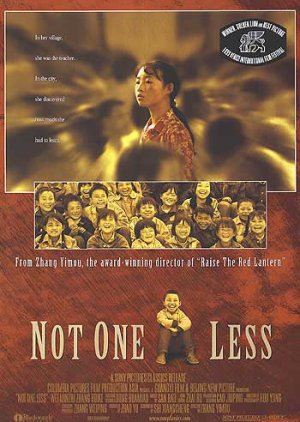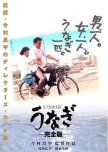
TheTranquilKnight
15 personnes ont trouvé cette critique utile
Underlying message of the film Is importance of primary education. I was amazed by it's realism when I started the movie. Setup is genuine, no need to check I can tell by seeing it. Heartbreaking conditions, ruined building, no facilities, poverty. It's 100% authentic portrayal of rural schooling, sufferings of rural students and people. It demonstrates how hard life is in a developing country. Everything is almost the same like the place from where I come; from village life to school.
With this kind of storyline it's obvious that it's very moving. Story may look depressing but it's full of extremely happy moments throughout the movie. A little girl writing a diary and caring about her teacher's views, when they were trying to solve the bus problem and they actually applied education in practical use, when they were using chalks and writing characters on the board...many scenes that can easily make you cry!
I read on the web & IMDB boards...many people got the feelings of movie and many didn't. I won't say more about the real feelings of movie because it may spoil you. Over analysing a movie is never good so don't try to over analyse the story and character's actions. Just follow the lead girl and you'll get what she was feeling, what she was doing and why. If you're from a developing country and especially from rural area you'll probably catch it in an instant and won't question character's decisions. Note that I'm not saying others won't get it easily. Be patient and you'll get the meaning.
Most amazing fact about this movie is it's rookie cast. None of the actors are professional actors. They all are just ordinary civilians; and on top of that the role of everyone is same as what they do in real world!! Every character has same name of the actor playing respective character...Like Teacher Gao was really teacher Gao, Mayor Tian is really Mayor Tian, TV show host was actually TV show host, TV station manager was deputy manager of TV station...you can see each person's real world work and their role on Wikipedia page of the movie. Wei Meizhi...the lead girl of the movie, is a village girl of China. With help of her brilliant performance she became famous. It's sad that after such strong start of her career she left acting career because she doesn't have beautiful face and body.
I came across this movie after watching 'The Road Home'. I was amazed by the movie and it's soundtrack. So I picked this movie because of the composer and it was a great choice...music is just like I expected! However, it's not filled with music but whatever there is...it's top quality!
Who should avoid this?
-You felt "eeeww" while reading this. Even if you felt it once avoid movie...
-Impatient, who don't prefer slow movies
-People who want to only pass the time
Who should watch this?
-A cinephile
-Someone looking for a moving film
-Someone looking for realistic material
-If you're still reading this...
Cet avis était-il utile?

Cette critique peut contenir des spoilers
Director Zhang Yi Mou left Gong Li and Zhang Zi Yi behind along with his penchant for saturated colors and rousing scores. He settled into the dust of a poverty stricken rural community far removed from the upwardly mobile citizens of the nearest city. The focus of the film was a crumbling schoolhouse and a 13-year-old substitute teacher tasked more with keeping the kids in school than teaching them.The majority of the characters were played by local people using their real names. When the film's older teacher has to leave to care for his dying mother, the mayor of the village hires the only person he could find, Wei Min Zhi, a teenager from another village who is barely older and more educated than the children she will be instructing. The school has been hemorrhaging children due to their parent's poverty and she is offered a bonus of 10 yuan (aprox $1.50 USD) if she still has the same number of kids when the teacher returns. In the dilapidated schoolhouse, chalk is like gold and the teacher parses out exactly how much she will need over 26 days.
At first the kids are running the show with Zhang Hui Ke, an energetic 11-year-old leading the insurrections. Wei is in over her head and somedays closes the door to keep the kids in while she sits on the outdoor step. One day Hui Ke doesn't report for class and Wei finds out that he has gone to the city to earn money for his debt ridden family. Refusing to accept his loss she seeks help so that she can travel by bus to the city to return him but is turned down. The kids come up with the idea to move bricks at the local brick factory to earn money for her bus ticket learning math along the way. Even with their work they can't come up with enough cash. Eventually, Wei does make it to the city where the little boy is lost as it turns out. She relentlessly searches for him and runs into more bricks in the form of bureaucratic brick walls, unable to get anyone to help her. This little pink cheeked substitute is not so easily deterred though and begins to wear people down. That she is near penniless and forced to scavenge food and sleep in the streets much like Hui Ke never seems to occur to her.
Zhang Yi Mou's look at the class differences and the detriments of growing up in poverty was interesting. Wei has no identification, no cell phone, no pager, a complete alien in the city. Unlike the village where everyone knows everyone else, the city is filled with mostly hostile strangers, even those with cell phones who sleep in the bus station. At the end of the movie it mentions 1 million children drop out of school due to poverty even as China moves financially forward and this film highlights how 3 yuan (42cents USD) for a Coke is completely out of reach for the children, most who have never tasted it even though it's sold in the local store. And the 20 yuan (less than $3) needed for bus fare might as well be a million.
Most of the children gave bright, emotional performances, especially Wei Min Zhi and Zhang Hui Ke. While I enjoyed the film and Wei's persistence, some scenes ran a little too realistically close to time. The city scenes went on too long for me. Yi Mou might have been trying to show Wei's dogged patience, but it also tried mine until the skies finally opened up for her. Fortunately, Yi Mou glossed over the danger penniless young people can face in the city.
Not One Less made me think of a shepherd searching for a lost sheep in a flock of indifferent sheep. The natural performances and stripped down story came across as authentic and heartwarming even when veering into the realm of a fairytale. The children may have lingered too long in the city but the gratifying culmination of the story was worth the wait and the trip.
9/22/22
Cet avis était-il utile?










































